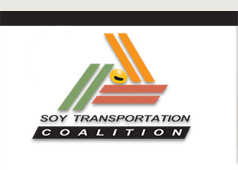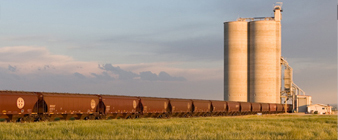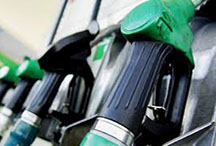 |
 |
|
| eNews • December 2014 | ||
| Promoting a Cost-Effective, Reliable and Competitive Transportation System |
||
 Obama throws cold water on prospects of gas tax hike
Obama throws cold water on prospects of gas tax hike
President Obama on December 3rd severely downplayed the chances of hiking the federal fuel tax to provide more stable surface transportation funding.
When pressured by FedEx CEO Fred Smith on why he isn’t take advantage of an opportunity to achieve bipartisan success on the issue, Obama said getting “votes on gas tax are really tough,” according to a White House transcript to the Business Roundtable in Washington. Congress is scrambling to find a way to increase federal surface transportation spending before the highway bill extension expires at the end of May. The nation’s inability to maintain its freight network and prepare for more loads on the roads and highways results in traffic congestion and greater wear-and-tear of trucks, ultimately costing shippers more to move goods in and out of the country and within.
“Gas prices are one of those things that really bug people. When they go up, they are greatly attuned to them, and when they go down, they don’t go down enough,” Obama said. “The gas tax hasn’t been increased in 20 years. There is a reason for that.”
Obama said he would speak with House Speaker John Boehner and presumed future Senate Majority Leader Mitch McConnell, both Republicans, on finding a short-term solution to replenish the Highway Trust Fund, the main driver of federal surface transportation spending. Obama stressed the need for a way to secure long-term dedicated revenue for highway spending that “is not so politically frightening to members of Congress.
“It’s probably a good time for us to redesign and think through … a sustainable way for us on a regular basis to make the investments we need. And this may be something that we can introduce into the tax reform agenda,” he said. “It may end up being too complicated, and we’ve got to do something separate, but we’ve got to figure this out. We are falling behind.”
The president said China’s ability to build its infrastructure, ranging from ports to airports, faster than the U.S. is “embarrassing” and eating away at the nation’s competitive edge. He mused how the Chinese conference center that hosted the Asia-Pacific Economic Cooperation event in November was built in a year, though, he added, such fast construction was made possible through an authoritarian government, a model the U.S. isn’t looking to emulate.
Although he has repeatedly called for more freight transportation spending, Obama has balked at raising the federal fuel tax. The fuel tax - an 18.4-cents-per-gallon gasoline tax and 24.4-cents-per-gallon diesel tax - hasn’t been increased since 1993. Uncle Sam spends about $53 billion on surface infrastructure annually and gets only about $35 billion of that from the HTF, according to Stifel, an investment research firm. It’s estimated the federal government needs to spend closer to $80 billion to $90 billion annually.
The gas tax rate will stay at the level it’s at unless Obama gets behind an increase, said James Burnley, co-chair of the transportation practice at Venable and a former transportation secretary under President Reagan. Some Republicans would attack him for raising the tax, but others would “breathe a sigh of relief” knowing they’ve gained a modicum of political cover, he said.
A trio of members of Congress backing a fuel tax hike this week trumpeted Reagan’s support in 1982 of increasing of the tax in an attempt to marshall their tax-averse colleagues to make an exception The former president and conservative darly pushed for a five-cent increase that took effect in 1983.
But it will take more than press stunts for legislators on both sides of the aisle to join the likes of Reps. Tom Petri, R-Wis., and Earl Blumenauer, D-Ore., and Sen. Tom Carper, D-Del. The political calculation must change. For many in Congress, the risk of not being elected because they supported raising the federal fuel tax is greater than any political shield or sense of rightness such support could provide. Mainstream news stories on the nation’s infrastructure woes, such as the recent 60 Minutes segment, raise attention to the issue but have not tipped the scales despite the pleas of shippers and transportation providers.
Source: Journal of Commerce
Soy Transportation Coalition |
|
